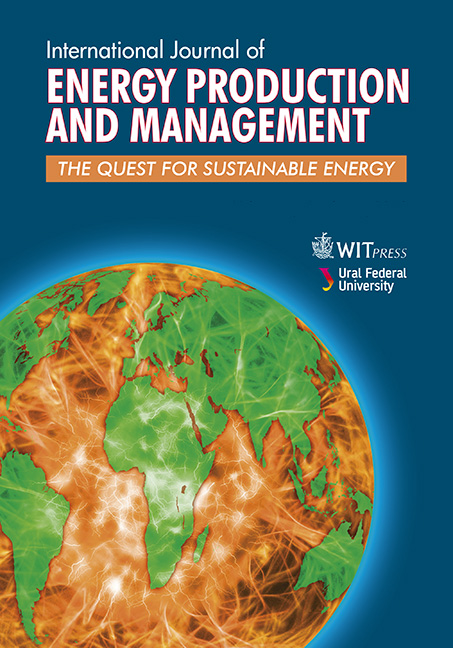Short Communication: Obtaining fresh water from natural and synthetic fuels in the energy sector
Price
Free (open access)
Volume
Volume 6 (2021), Issue 2
Pages
8
Page Range
193 - 201
Paper DOI
10.2495/EQ-V6-N2-193-201
Copyright
WIT Press
Author(s)
Sergey E. Shcheklein, Alexey M. Dubinin & Naseer T. Alwan
Abstract
In this work, a comparative study of the specific air consumption and water vapor emissions in combustion products was performed based on the analysis of stoichiometric equations for air oxidation reactions both of energy fuels (petrol, diesel fuel, gaseous fuel, wood) and synthetic fuels converted from biomass and coal fuels (ethanol, methanol, etc.), as well as hydrogen fuel. For the limit process temperature, the excess air ratio for various types of fuels and the real volumes of air and fuel consumption and water vapor emissions were determined. Theoretically, abnormally high consumption of atmospheric air when using hydrogen and gas fuel was shown. The feasibility of the beneficial use of the products of oxidation of organic fuels and hydrogen to produce fresh water was substantiated. The analysis procedure presented in the study was revealed to be universal and can be applied to investigate any existing and newly created fuel compositions.
Keywords
diesel, fresh water, fuels, gasoline, hydrogen, methanol




